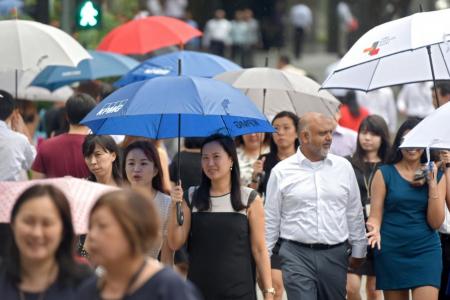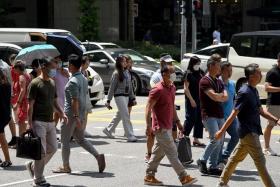Rethink needed for managing workforce of the future
Employer-employee relationship likely to change with birth of gig economy
"If your leadership repertoire is limited to a command and control style, you will have some soul-searching to do."
With the advent of the "gig economy" in Singapore - where conventional jobs are replaced by freelance, on-demand "gigs", or short-term projects - the relationship between employer and employee needs to be completely rethought.
Perhaps these terms will even become redundant?
The benefits for Singapore's predominantly young workforce include the ability to enjoy freedom, autonomy and the prospect of a much-expanded career portfolio that this kind of work provides.
Meanwhile, employers get a much more flexible workforce in tough economic conditions.
But this trend could create issues for the workforce, as well as for the wider business environment.
Last month, the Singapore Government announced that it will set up a tripartite workgroup to study the concerns faced by freelance workers, including the lack of income security and retirement savings.
Companies such as foodpanda, Grab and Airbnb are frequently credited for, or accused of, generating these contingent jobs, but of course casual, part-time and contract workers were a component of the workforce long before their arrival.
Whether by design, ambivalence or employment regulations, contingent workers are often ranked as second-rate citizens in most organisations.
At best, viewed as short-term external expertise; at worst, dispensable hired hands. Either way, they are often denied monetary, social and professional development benefits enjoyed by permanent employees.
The gig economy suits many millennials with the skills, talent and digital resources to juggle multiple projects and employers, accelerating their earning capacity and professional networks.
But being classed as "talent on demand" also has its shortcomings which include the lack of worker benefits usually provided by employers, legal protection, the potential for financial disadvantage due to inconsistent or piecemeal work and commoditised skills that become devalued in an open global market.
For the last two decades, employers in Singapore have fought the escalating war for talent and rather than this war abating, it is gaining intensity on many fronts - especially in professions requiring advanced science, technology and engineering skills.
However, organisations, leaders, managers and employment policymakers are ill-prepared for an agile workforce that will assess its own career portfolio opportunities and vote with its feet.
If your leadership repertoire is limited to a command and control style, you will have some soul-searching to do.
PRACTICE
Almost every employment practice that exists today can and should be dismantled and scrutinised for its propensity to either help or hinder the talent attraction and retention demands of the business.
To prepare for the future, employers need to rethink their workforces. It boils down to this: Employers have an ownership mindset about their employees, but as author Orly Lobel aptly notes in the title of her book on the topic, talent wants to be free.
The skills and mindset required to effectively manage the workforce of the future are, predictably, different from those that succeeded in the past.
The premise that authority, know-how and decisions cascade from the top is already coming undone.
If your leadership repertoire is limited to a command and control style, you will have some soul-searching to do.
While the hierarchy is undoubtedly likely to become more egalitarian, technology itself will play a significant role in future workflow management.
As is already the case with Uber, for example, machine algorithms are effectively replacing the role of supervisors and managers, by sourcing work, assigning it to workers and managing performance via feedback and ratings. An algorithm could be your next boss.
In this context, businesses in Singapore need to surface three intelligences as differentiators for leadership success: Digital intelligence, cultural intelligence and business intelligence.
Digital intelligence means understanding the strategic power of information technology and having the ability to execute digital strategies for competitive business advantage.
Cultural intelligence denotes understanding and appreciating cultural differences and having the ability to work effectively in a variety of cultural settings.
And finally, business intelligence - understanding the business drivers, systems and capabilities, and having the ability to contribute strategic advice based on workforce analytics.
With these elements in place, businesses will be in a position to galvanise the workforce of the future and unleash the boundless talent available here.
The writer is CEO of talent management Software-as-a-Service company, PageUp, and co-author of Cliffhanger: HR On The Precipice In The Future Of Work. This article appeared in The Business Times yesterday.
Get The New Paper on your phone with the free TNP app. Download from the Apple App Store or Google Play Store now



